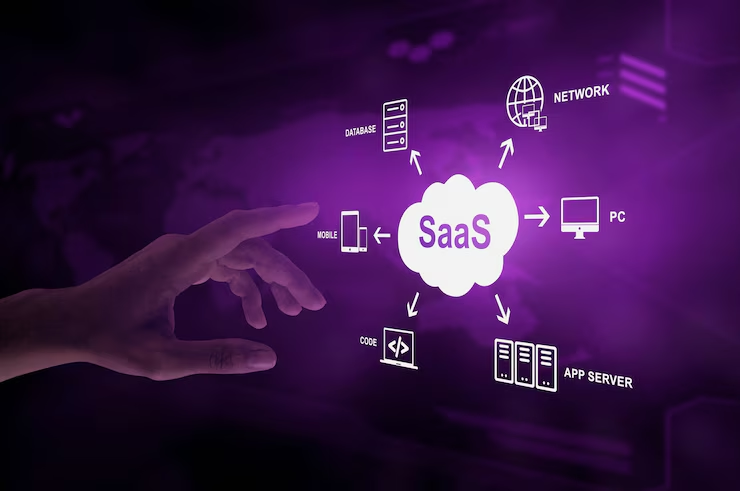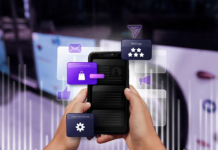Artificial intelligence (AI) is a powerful technology that is growing fast with findings in new AI applications in various industries. Figures from Gartner show that 37 percent of organizations have already implemented AI and this trend looks only set to continue as more businesses move towards digital transformation. AI is proving to be a valuable asset through an increasing number of implementations and in 2019, the global AI market grew by as much as 154 percent. Thanks to new Artificial Intelligence applications along with machine learning, deep learning, and data analytics; businesses are revolutionizing common business processes, and the technology is developing by the day.
Most businesses are interested in finding new ways to scale operations and maximize productivity. With an experienced and reliable IT company like Computers In The City, it’s possible to find the areas of potential improvement in your IT systems.
Machine learning platforms
Machine learning is the division of AI that refers to systems having the ability to learn automatically through experience. This enables the technology to develop and improve without human intervention. It uses sets of algorithms that are based on training data.
Machine learning platforms provide solutions to data science problems and give support to data science tasks. They provide the necessary data, algorithms, APIs, computing power, and development and training toolkits. The platforms are mainly used for data access, classification, and prediction.
Speech recognition
Also known as automatic speech recognition (ASR) or speech to text (STT), the technology of recognizing and transcribing spoken language to text has made vast improvements in recent years. It can bring greater efficiency and productivity to the office, as emails are dictated and the minutes of a meeting recorded. Speech recognition still has some obstacles to overcome, but the capabilities of solutions are increasing. Popular AI applications include Sonix, Braina, and OpenText.
Read More: Speech to Text Conversion Using JavaScript
Virtual agents
These are the computer-generated intelligence that can provide assistance, mainly in customer service, customer support, and smart home managers. They range from chatbots that answer simple questions to advanced systems that can network with humans. They can be empowered to take action, such as booking appointments like you would through booking software or placing orders, and machine learning technology is used to develop their capabilities. Virtual agents are provided by IPSoft, Microsoft, Amazon, Google, Create Virtual, and Satisfi.
Read More: Building a simple NLP based Chatbot in Python
Natural language generation
Technology with the ability to convert raw data into understandable natural language is known as natural language generation. It may be in either spoken or written form, and it helps with the communication of complex ideas so the interpretation of data isn’t required. Currently, this is used in report generation, customer service, and summarising business insights. This technology is also used to power virtual agents and smart devices. Companies that provide natural language generation include Digital Reasoning, Attivio, and Yseop.
Biometrics
Biometrics is the collection of technologies that use the unique attributes of individuals for authentication and identification, among other uses. The area works with the natural interactions between humans and machines, and it looks at fingerprint, iris, face, voice, hand, and gait. Pattern recognition has a wide range of security applications, and it is also used in market research. Companies that are currently working with biometrics technologies include 3VR, FaceFirst, Affectiva, and Sensory.
Read More: Learn about Biometrics in CISSP
Robotic process automation
This is one of the new technologies that is enabling digital transformations in businesses all over the world. It allows mundane, time-consuming tasks to be carried out through automation, so human intelligence can be used in more creative and intuitive tasks. RPA can be used for data entry or form processing, expense management, or onboarding employees. It can massively increase efficiency and reduce costs, but its implementation isn’t always successful. Key vendors of this technology include Blue Prism, Advanced Systems Concepts, and UiPath.
Read More: Introduction to Robot Security Framework
Natural language processing
Natural language processing (NLP) is a branch of AI that is involved in the interaction between human languages and computer systems. It uses text analytics to enable the analysis and understanding of sentence meaning and structure, as well as the intent and sentiment conveyed in speech. This is made possible through machine learning and statistical techniques. This technology is used in security, fraud detection, automated assistants, and applications for mining data. It is currently worked on by Lexalytics, Mindbreeze, Sinequa, and Coveo.
Deep learning platforms
Deep learning is a division of machine learning that is based on artificial neural networks and representation learning. Deep learning algorithms use artificial neural networks with multiple abstraction layers. It is used in pattern recognition, speech and image recognition, and classification applications that require large sets of data. Deep learning platform providers include Fluid AI, Deep Instinct, Saffron Technology, Leverton, and Sentient Technologies.
Decision management
Decision management involves the ways that automated decision-making systems are designed, developed, and managed within an organization. These systems are used to manage interactions between employees, customers, and suppliers. AI systems that are based on rules and logic can be used for ongoing maintenance and training. This technology can be used in a wide range of enterprise AI applications for automated decision making. Notable companies working in this field include Informatica, Maana, Advanced Systems Concepts, and UiPath.
Augmented reality
Looking into the future, augmented reality could impact the way technology is used in business operations. Augmented reality focuses on changing perceptions of the surrounding world with the use of digital manipulation. By wearing AR goggles, the subject is able to visualize how a physical space could potentially appear, or receive information related to objects in their view. This has potential applications in retail, industry, design, and training. Microsoft’s HoloLens has been used by NASA in building spacecraft, and CAE Healthcare for training purposes.
Artificial intelligence holds a great deal of potential for organizations looking to modernize their operations. When implemented in the right way, AI solutions or Artificial Intelligence applications can have a huge impact on businesses by improving efficiency, reducing costs, and allowing leaders to focus on the business core. This will enable them to see what is most important, and what should be their first priorities for the new AI-enhanced future.









